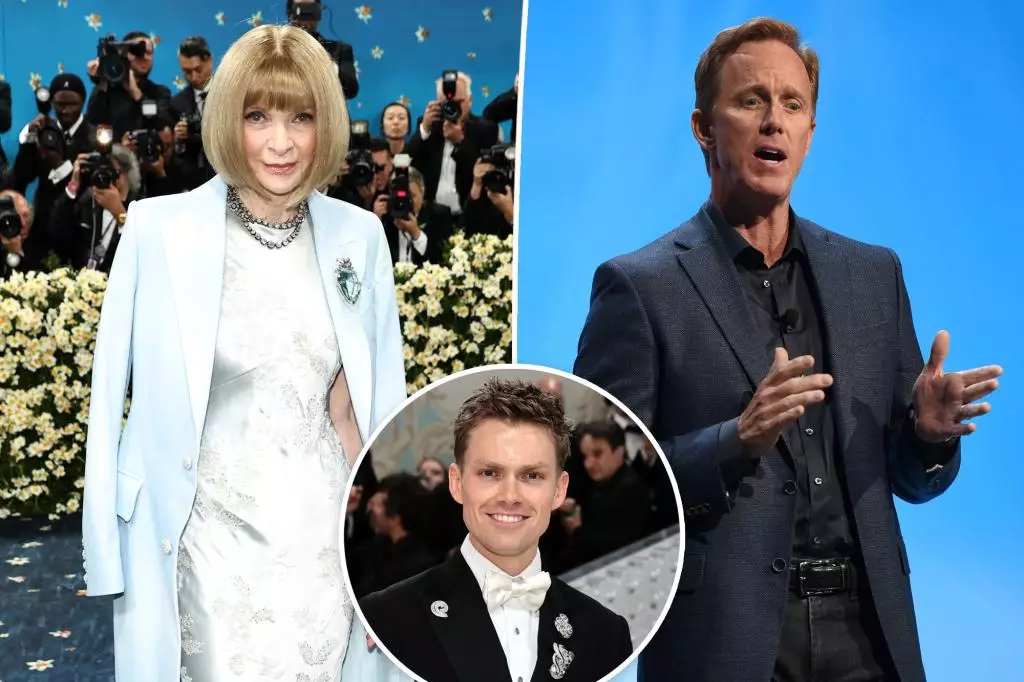In the competitive world of fashion and media, few figures are as pivotal as Anna Wintour, the long-standing editor of Vogue and the artistic director for Condé Nast. This week, her selection of Mark Guiducci as the first-ever Global Editorial Director for Vanity Fair has sent ripples through the elite circles of the publishing industry. Although the announcement has been portrayed as a strong move by Wintour, insiders suggest that her decision has sparked significant dissent within the company. Reports indicate that Wintour’s choice may not only have gone against the grain of what Condé Nast CEO Roger Lynch wanted but could also symbolically highlight a clash of personalities and visions at one of the world’s leading media conglomerates.
Allegations of Overstepping Authority
Several sources have claimed that Wintour acted unilaterally in appointing Guiducci, a decision that did not enjoy full support from Lynch. It’s been described as her “going rogue,” which underscores a deeper issue of authority within the organization. One insider expressed that Wintour’s announcement created a somber atmosphere among the staff, likening it to a “funeral.” Such a comparison is telling; it suggests that the mood at Vanity Fair is not one of celebration but rather skepticism, perhaps even mourning for what could have been had a different candidate been chosen.
Conversely, another source has outright rejected the notion that Wintour overstepped her bounds, asserting that Lynch, despite his absence during the announcement, was closely involved with the selection process. This dichotomy reflects a larger narrative about the complexities of leadership within high-stakes environments. Can authority be split between charismatic leaders and corporate executives who operate behind the scenes? The internal disagreements cast a shadow over what should be a moment of triumph, calling into question the stability of leadership at Vanity Fair.
Connections and Controversies
One of the most contentious aspects surrounding Guiducci’s appointment is the narrative of “nepotism.” Given his close ties to Wintour’s family, it’s no surprise that some staffers have labeled him a “nepo hire.” Critics argue that Wintour selected someone who would be easier to control, rather than choosing a candidate based on merit alone. This perception of favoritism does not merely suggest an internal bias; it evokes larger discussions about meritocracy within the media landscape. Does maintaining family connections dilute the independence of editorial decisions? This situation paints Guiducci’s ascendance in a murky light, prompting whispers that his relations to Wintour may overshadow his professional competence.
Despite these criticisms, Guiducci brings with him a remarkable resume, having previously served as editor-in-chief at Garage magazine, a platform known for pushing cultural boundaries. His return to Vanity Fair, which he described as “the honor of my career,” raises interesting questions about the impact of legacy and familiarity in a constantly evolving media environment. Will his past experiences translate into innovative visions for Vanity Fair, or will the weight of past associations hinder his ability to lead?
The Stakes for Vanity Fair
Wintour’s endorsement of Guiducci as “an energetic and creative editor” reveals her faith in his potential to guide Vanity Fair into future successes. However, the outcry from current staff and the media community provides a deeper insight into the stakes involved; with Guiducci at the helm, the publication may face internal divisions that threaten its cohesion and output quality. The shake-up comes at a critical juncture, following the departure of former editor Radhika Jones after a seven-year term. How Guiducci will navigate this tumultuous environment is yet to be seen, but the growing discontent hints at a challenging future.
Furthermore, the apprehension surrounding this leadership transition may reflect wider industry skepticism about the state of traditional publishing. As media platforms evolve and audiences shift, the strategies employed by established publications like Vanity Fair must adapt accordingly. If Guiducci’s appointment fuels internal discord, the implications could resonate far beyond the company walls, potentially affecting the magazine’s standing in an already competitive marketplace.
The arrival of Mark Guiducci as Vanity Fair’s global editorial director is not just an appointment; it is a power play that raises critical questions about authority, influence, and the future direction of a storied brand. The coming months will reveal whether Wintour’s controversial choice will ultimately be lauded as visionary or vilified as a misstep in a changing media landscape.

